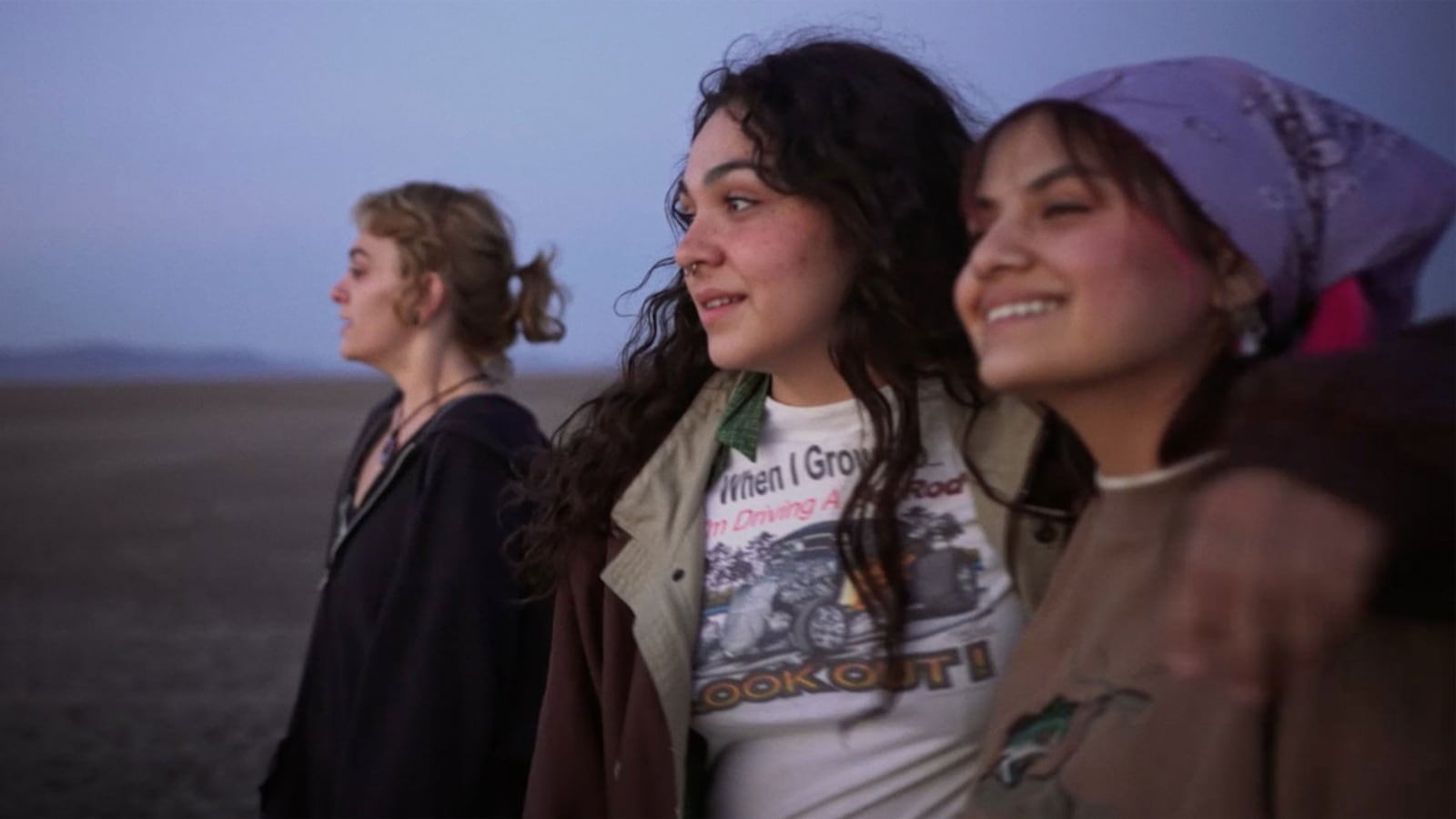There are many moments in Gasoline Rainbow, the teen road trip drama directed by Bill Ross IV and Turner Ross, that defy classification into either fiction or reality. It’s shot as if an unseen member of the friend group at the core of the film is holding a camera at all times, swinging it around inside a cramped van, jerking it from side to side as they run down empty highways and flat fields. Following today’s teens’ first steps into the wide world of adulthood, Gasoline Rainbow is a melancholy, meandering road movie for a generation on the precipice.
The film is led by a group of five first-time actors, three boys and two girls, playing high-school seniors about to graduate from the world they knew and leave their homes for higher education. Having grown up in a small town in the middle of the Oregon flatlands, they’ve never seen the Pacific coast, so they pile into their friend’s van and set off down the road. Most of the movie is just listening to them talk about anything and everything. Their conversations range from music on the radio to abusive home situations to global warming with no beginning, no end, and no logical through lines, as if these really are just kids shooting the shit with their pals.
One of the Ross brothers’ previous films, the “documentary” Bloody Nose, Empty Pockets, chronicled the last big night of a closing bar—but since they couldn’t film inside the actual bar itself, they dressed up a different location and filmed with a cast, blurring the line between fiction and realism. That’s the effect they achieve in Gasoline Rainbow, which is most definitely fiction, but whose performances are so rambling and naturalistic that it’s difficult to tell where script ends and improv begins. During the quieter parts, voiceovers take over, taken from interviews with each of the actors about their hopes and fears for the future, and what they’ve learned from their past and their complicated home lives.

The cast of Gasoline Rainbow.
MUBIThere’s a plot, but only just. The kids’ mission, after hearing about it from a local stranger, is to make it to a big beach party “at the end of the world,” one last wild night as kids before their lives forever change. No setback—stolen tires, fights, lack of money, no place to sleep at night—is too major to deflect them from their goal, as if they still live in that charmed era of childhood where everything tends to work out if you just keep going. Still, the end of the world, as a concept, is at the forefront of all of their minds: Generation Alpha is more conscious even than Gen Z that they’re inheriting a world on the brink of some international or environmental catastrophe. “Things won’t ever go our way,” one of them murmurs in a voiceover. “Global warming is fucking real!” another shouts.
The film has the same winding, wandering quality as some of the most classic road movies—Easy Rider; My Own Private Idaho; Paris, Texas. Like any quest narrative, the kids are driven by their own goals and by the side characters they run into along the way. They party with a group of teens in the desert, they ride the rails with a homeless duo, they take a boat ride through the channels of Seattle. In one of the best sections, the kids spend the night at the home of a metalhead who serves them breakfast the next morning while playing The Fellowship of the Ring soundtrack. The almost total lack of narrative conflict could seem frustrating, but that’s part of it all, a world crafted from youthful adventure rather than the stress of adulthood. For now, for one last ride, as long as they’re together everything will turn out all right. After that, who knows?






